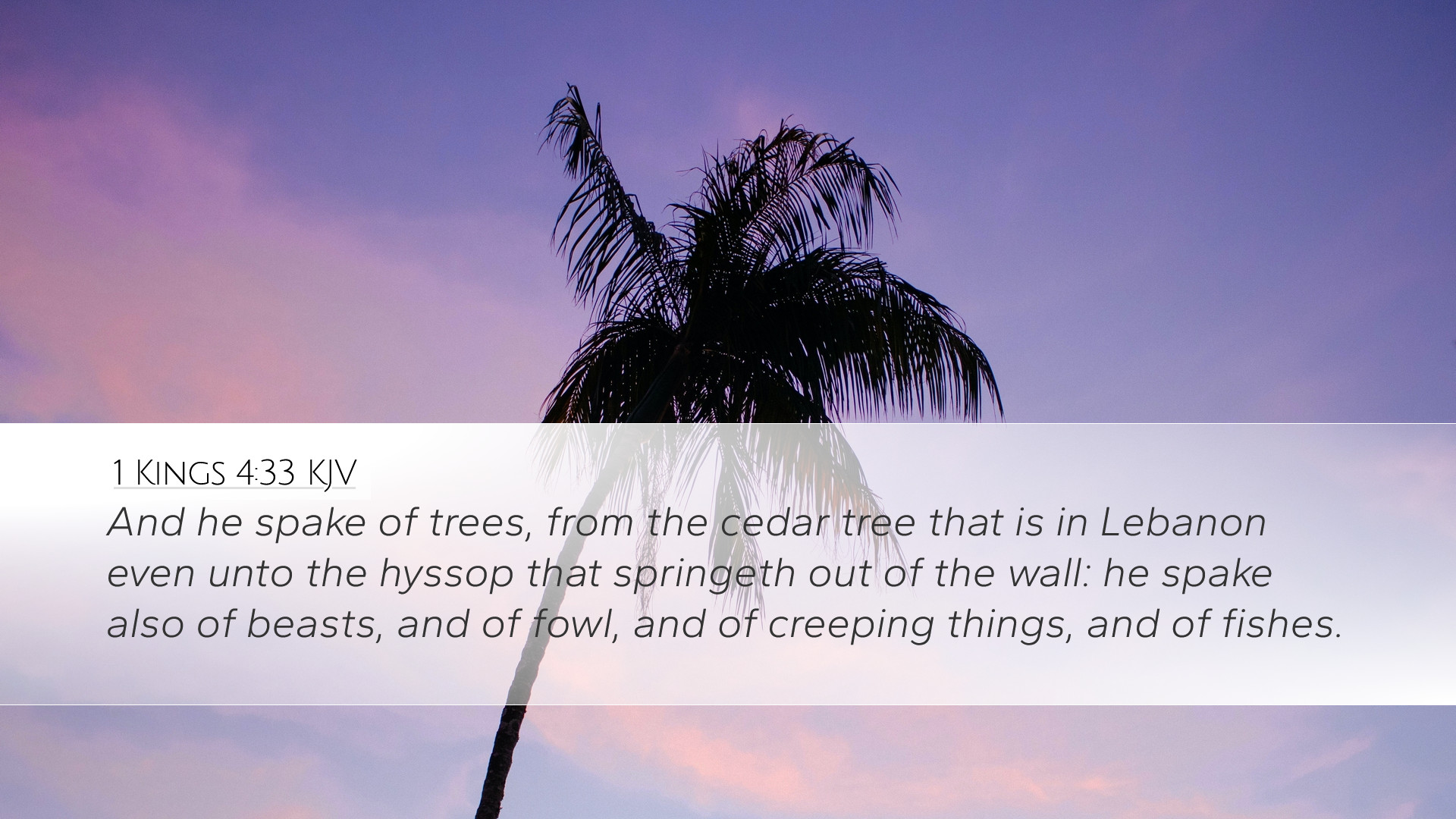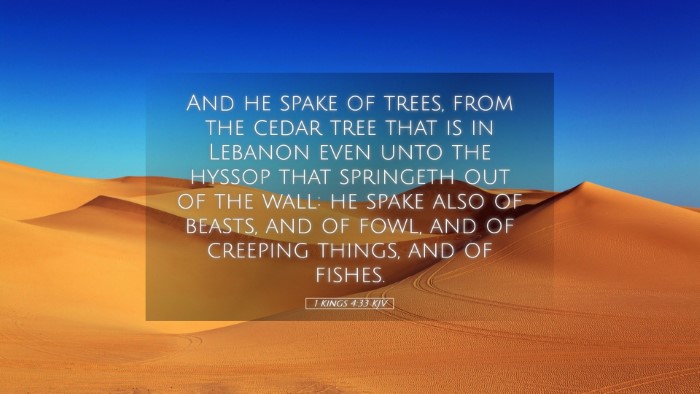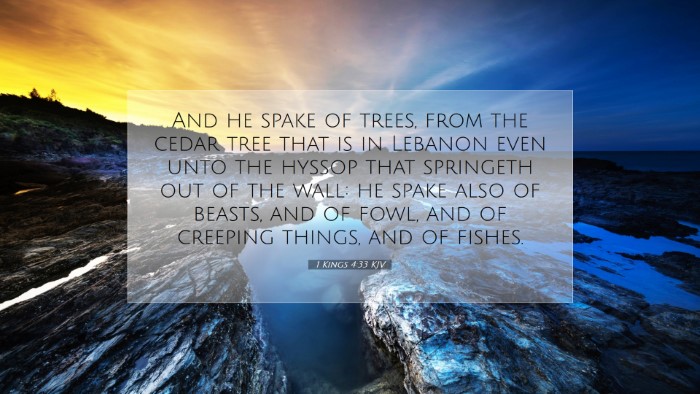Commentary on 1 Kings 4:33
Verse: 1 Kings 4:33: "And he spoke of trees, from the cedar tree that is in Lebanon even unto the hyssop that springeth out of the wall: he spake also of beasts, and of fowl, and of creeping things, and of fishes."
Introduction
This verse belongs to the narrative regarding King Solomon's wisdom, showcasing not only his intellectual capacity but also his deep understanding of the world around him. The verse encapsulates Solomon's themes of nature, biology, and the intricate relationships within God's creation, revealing the breadth and depth of his discourse.
Insights from Public Domain Commentaries
Matthew Henry's Commentary
Matthew Henry emphasizes the supernatural wisdom granted to Solomon by God, which is revealed through the specific topics he discusses. According to Henry, Solomon's discourse on trees, animals, and other forms of life reflects a profound knowledge that surpasses common understanding.
He points out that Solomon speaks of the "cedar tree that is in Lebanon," known for its majesty and strength, representing the glory of creation. This contrasts sharply with the "hyssop that springeth out of the wall," symbolizing the humility of lesser creations yet both significant in God’s creation tapestry.
Albert Barnes' Notes
Albert Barnes extends Henry's insights by delving into the classification of nature as illustrated by Solomon. He notes that Solomon’s knowledge encapsulates a wide array of life forms—vegetative, animal, and aquatic. Each category serves to demonstrate God’s divine order and harmony within creation.
Barnes highlights that the mention of "creeping things" and "fowl" reflects not only an understanding of taxonomy but also the observation of their unique contributions to the ecological balance created by God. Thus, Solomon’s wisdom symbolizes a holistic approach to knowledge, considering all aspects of life.
Adam Clarke's Commentary
Adam Clarke provides additional layers to the interpretation by discussing the significance of the specific elements Solomon focuses on. He notes that the cedar tree symbolizes grandeur and longevity, while the hyssop represents humility and the often-overlooked aspects of creation. Clarke posits that Solomon’s interest in the "beasts and fowl" reveals his ability to perceive the intricacies and interdependencies within the animal kingdom.
Further, Clarke argues that Solomon’s wisdom is preeminent as it draws on natural philosophy, a precursor to modern ecological understanding. The verse is indicative of a king whose governance reflects care and responsibility toward both the people and the environment, demonstrating a leadership style grounded in respect for God's creation.
Theological Significance
- Wisdom as Divine Gift: Each commentary reflects on the divine nature of Solomon's wisdom, emphasizing that it was a gift from God, which can inspire today's leaders and scholars to seek wisdom from the divine source.
- Relevance of Creation: In a contemporary context, the focus on various species and plant life reminds theologians to regard environmental stewardship as part of their faith, reflecting the Creator's intent in caring for the earth.
- Balance and Harmony: The interplay of majesty (cedar) and humility (hyssop) serves as a reminder to society about the importance of valuing all of God’s creation, encouraging a harmonious relationship with both the mighty and the lowly.
Applications for Modern Readers
For pastors, students, and theologians, this verse emphasizes the following applications:
- Education and Inquiry: The pursuit of knowledge about the natural world is both a spiritual and intellectual endeavor, urging individuals to explore God’s creation deeply.
- Preaching Creation Care: Addressing the environmental crises through a biblical lens can help congregations connect their faith to the care of God’s creation.
- Embracing Diversity: Encouraging an appreciation for the variety within creation can foster greater understanding and appreciation for God's diverse designs and purposes.
Conclusion
1 Kings 4:33 serves as a profound testament to the depth of divine wisdom bestowed upon Solomon and his remarkable ability to communicate the complexities of God's creation. By studying this verse and its interpretations, modern believers can gain insight into the importance of knowledge, the sacredness of all life forms, and the ongoing call to stewardship in the created order.


